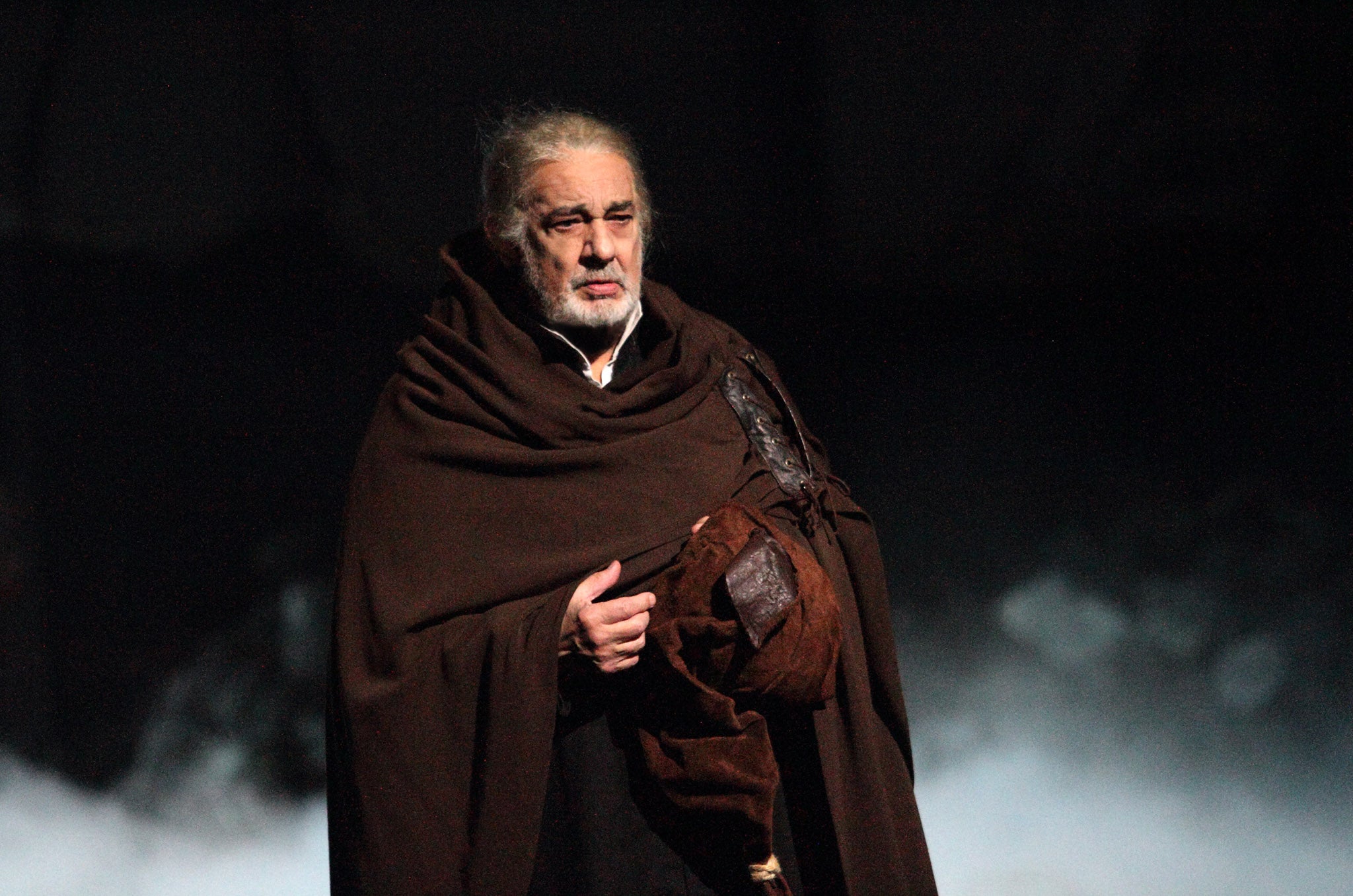I due Foscari, Royal Opera House, review: A duff production
This was the wrong opera, with the wrong director

Since reverting to the baritone voice he began with, Placido Domingo has chosen his Covent Garden roles with care. As he observed in public discussion with Antonio Pappano last weekend, he now shares the stage with singers who could be his children, so now we’re talking patriarchs, not heroes.
In 2010 he incarnated Verdi’s Simon Boccanegra with searing intensity, his final words seeming like a benediction from the grave. In Nabucco he broke our hearts with his transformation from blustering tyrant to desperate father pleading for the life of his child.
Francesco Foscari, the patriarch he plays in I due Foscari, is caught in an agonising dilemma, compelled by his position as the Venetian Doge to uphold an edict which condemns to exile his last surviving son Jacopo for a crime which it transpires he did not commit.
But this is early Verdi, and the mechanics of the drama are pretty rudimentary – indeed, most of the drama has taken place before the curtain rises – and apart from a set-piece festival scene, everything happens behind closed doors.
The protagonist’s dilemma may be a cruel one, but it’s standard nineteenth-century stuff, and the characterisation is hardly subtle. Verdi’s overriding concern with this work lay in the colouring of the music, and that is what we are reminded of when Domingo’s Doge launches into his opening lament.
We’ve heard Francesco Meli’s Jacopo – initially below the note, but gradually finding a ringing nobility – as he protests his innocence, and we’ve registered the efficiently-sung prayer to heaven by Maria Agresta’s Lucrezia, but when Domingo’s Doge delivers his mournful rumination we get a taste of the old artistry.
His part is musically understated, and he lets it flower with easy grace; his light baritone is effortlessly commanding, and his recitatives are beautifully inflected. When all three singers join for the Act Two trio, the effect is superb.
Unfortunately, however, Domingo is systematically undermined by the production. Director Thaddeus Strassberger and his team present the work in a giant grotto, around which they are forever pointlessly shunting bits of furniture.
Clearly excited by hints of torture, they take every opportunity to give us their own slavering version of S&M; they love dry ice and frocks, to the point where we lose count of Lucrezia’s haute couture costume-changes.
But they don’t have much interest in lighting (apart from a tiresomely-repeated front-projection), and their movement direction is primitive in the extreme. They even contrive to make their festival – complete with tumblers and fire-eaters – seem inert. Yet Antonio Pappano conducts with precision and delicacy, and the chorus sing their hearts out.
The denouement – in which the Doge is humiliatingly supplanted, and dies of grief – allows Domingo the space he needs to project all the tragedy of his character, but cack-handed direction manages to defuse even that. He still gets his ovation, of course, because people still adore him. This was the wrong opera, with the wrong director: let’s hope he has better luck next time.
Join our commenting forum
Join thought-provoking conversations, follow other Independent readers and see their replies
Comments
Bookmark popover
Removed from bookmarks